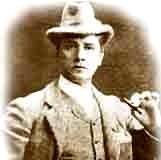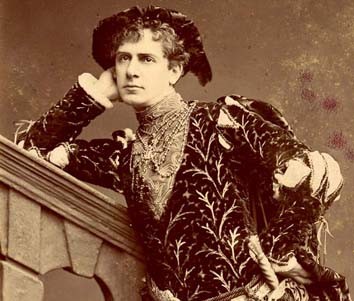Richard Archer Prince, also known as William Archer Flint, was an actor and the murderer of William Terriss outside the Adelphi Theatre, in London.
Prince was born Richard Millar Archer near Dundee, Scotland and aspired to become an actor. By 1887 he was appearing in bit-parts in the London theatres.
William Terriss was one of the leading actors of the time. By 1897, Terriss and Prince had become acquainted. Terriss helped the struggling younger actor to find work in various productions that he had a hand in. However, Prince had, in the intervening years, become more mentally unstable and had become known as Mad Archer. During the run of The Harbour Lights, in which Terriss starred and Prince had a minor role, Terriss took offence to something that Prince had said about him and had Prince dismissed. Terriss, however, sent small sums of money to Prince, via the Actors' Benevolent Fund, and continued to try to find him acting work.
By the end of 1897, Prince was destitute and desperate for work, but he had become unemployable. On 13 December he was forcibly ejected from the foyer of the Vaudeville Theatre, and he and Terriss were seen to argue the next night in Terriss's dressing room in the Adelphi Theatre.
On 16th December, as Terriss was entering the Adelphi's stage door in Maiden Street to prepare for the evening's performance, Prince stabbed him in the back, side and chest. When captured, Prince told police, "I did it for revenge. He had kept me out of employment for ten years, and I had either to die in the street or kill him." Terriss died shortly afterwards.
Prince appeared at the Old Bailey on 13 January 1898. He initially pleaded "guilty with provocation" but changed this on the advice of his counsel to not guilty. The defence attempted to prove insanity, with doctors and even his mother giving evidence that he was of unsound mind.
The jury pronounced Prince "guilty, but according to the medical evidence, not responsible for his actions." He was sent to Broadmoor asylum. Confined to the hospital, he became heavily involved in entertainment for the inmates and conducted the prison orchestra.
References
Smythe, Arthur J. The Life of William Terriss Actor. Westminster: Archibald Constable, 1898.
Wikipedia.org



